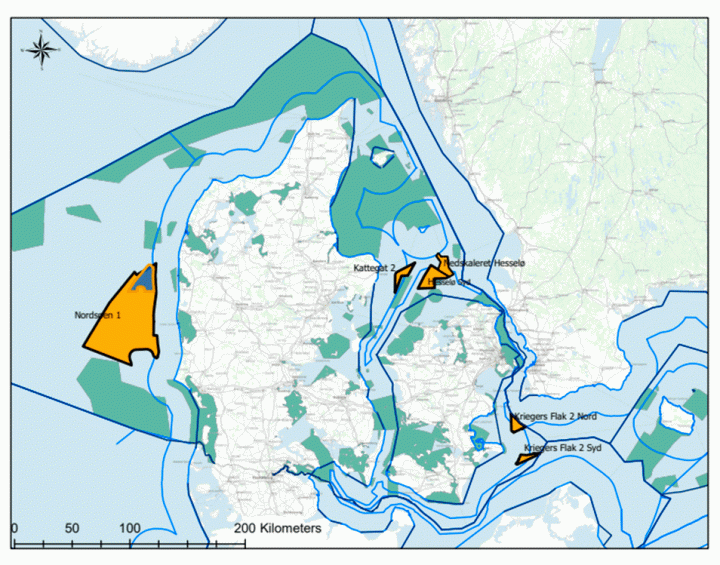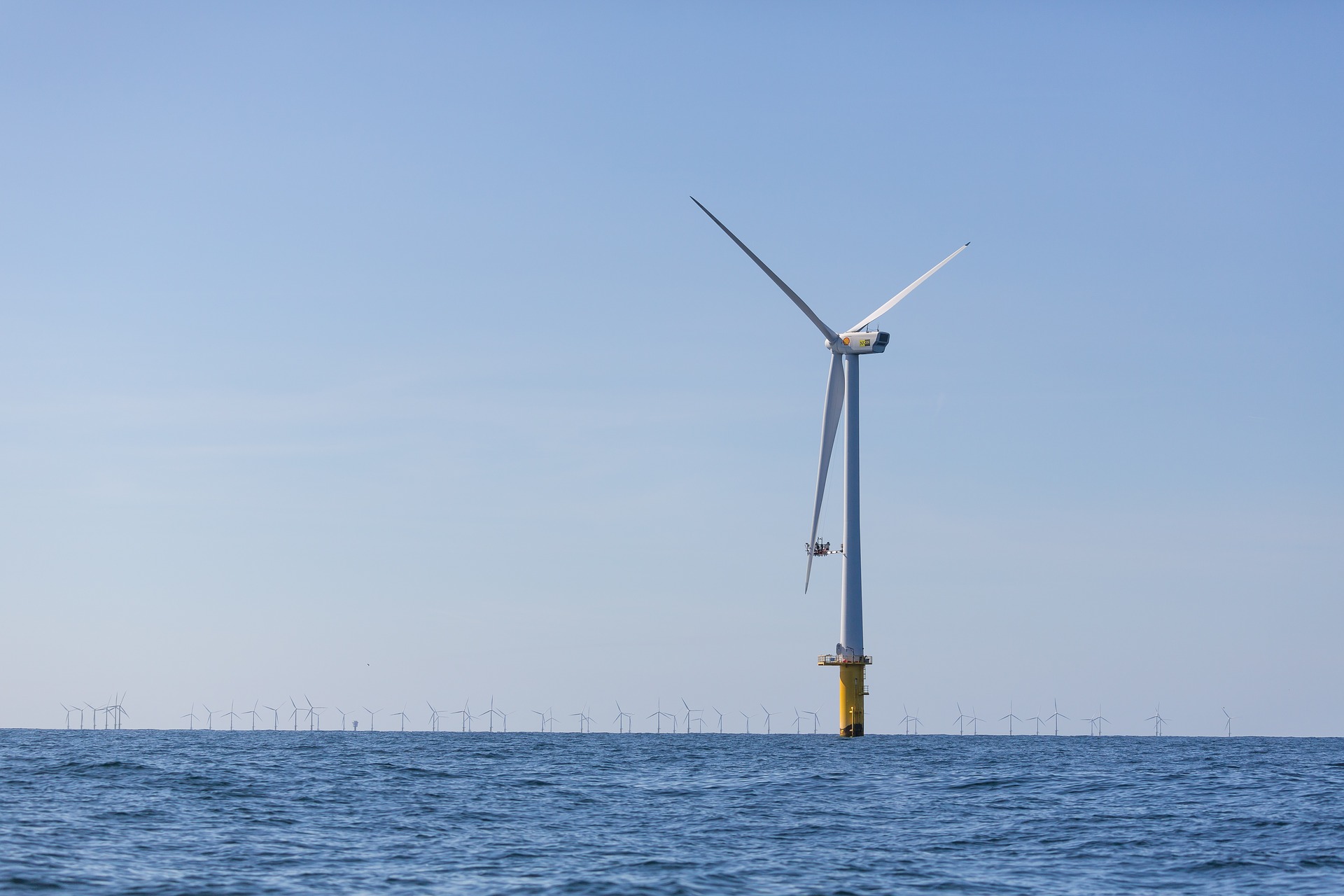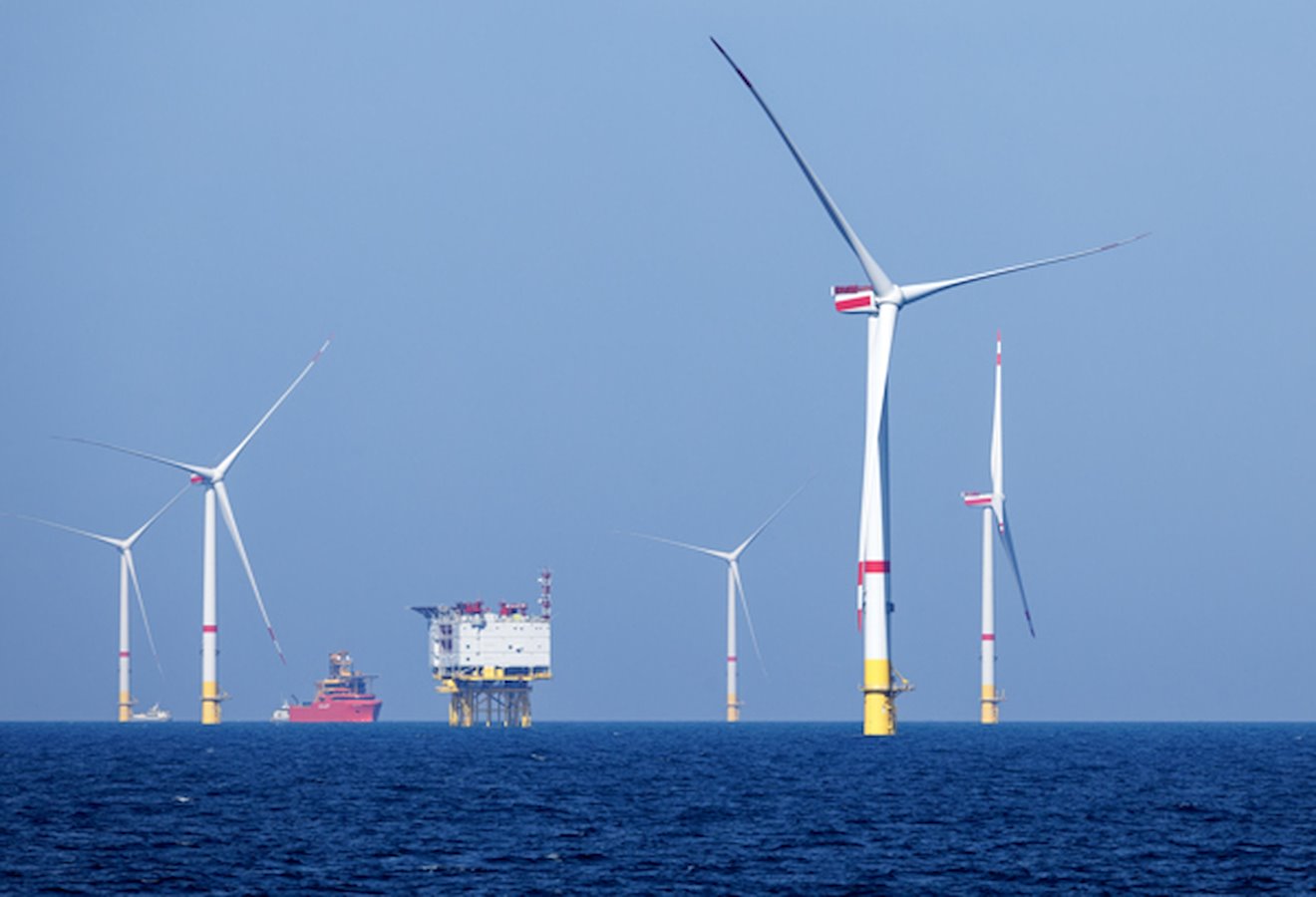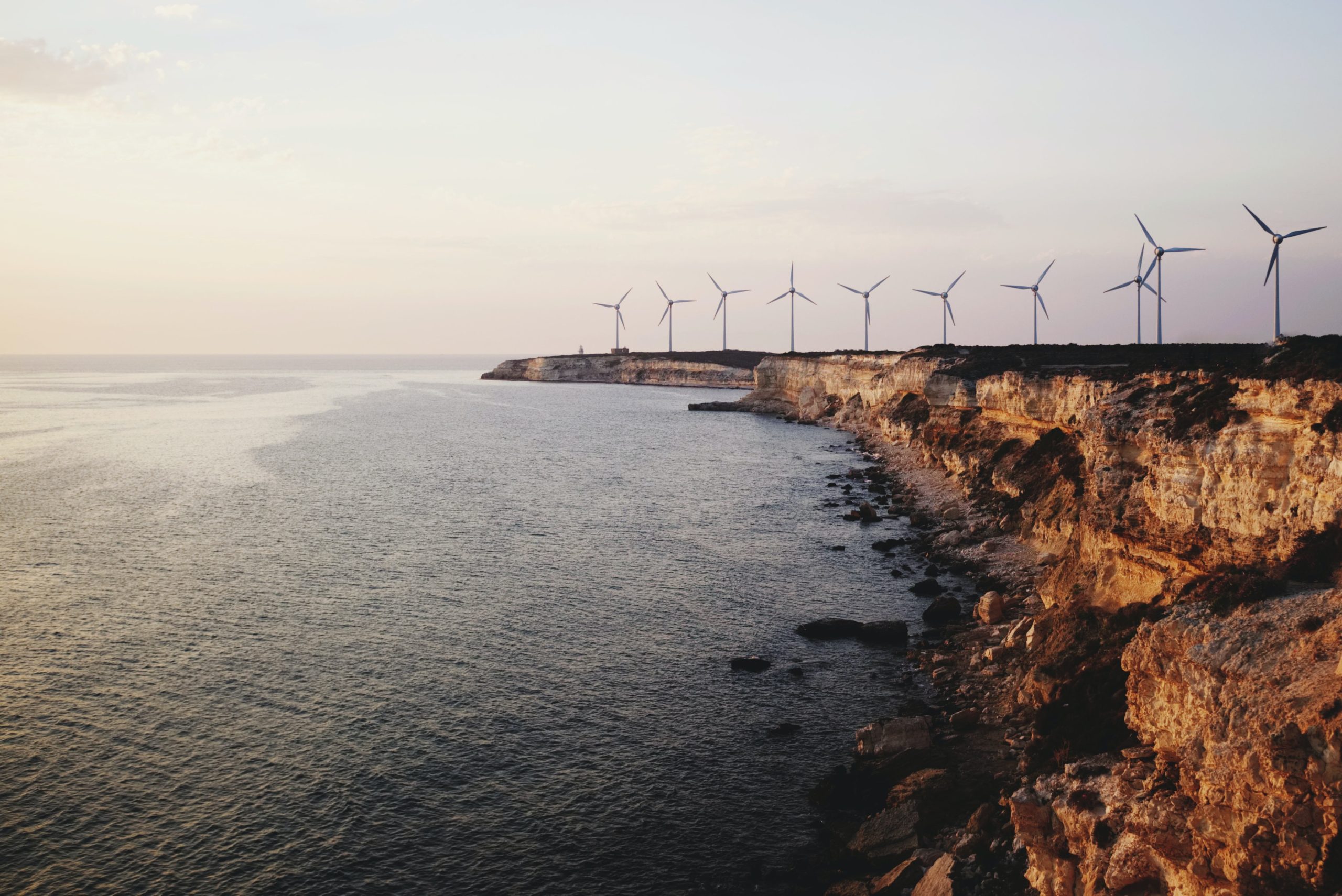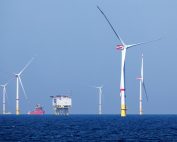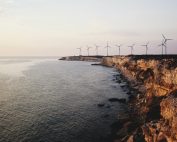The Danish Energy Agency has launched an analysis of alternative areas for the Hesselø offshore wind farm, which will be built as part of the 2018 Danish Energy Agreement. Preliminary studies of the seabed have shown that the originally assumed area has a soft clay bottom. If the seabed is found to be completely unfavorable, the farm could be built elsewhere.
The Hesselø offshore wind farm is one of three offshore installations to be built under the 2018 energy agreement. In it, it was decided to build large-scale offshore wind farms of at least 800 MW each by 2030. One of these is the Hesselø power plant, which is originally planned to be built at a location 30 km north of Zealand and about 20 km from Hesselø Island. According to the initial schedule, the farm will be built in 2027, which is why the Danish operator has tentatively started offshore studies. In June 2021, it started the tender process for the farm, which was halted after preliminary information from seabed surveys – it turned out that a large part of the area where construction is planned has soft clay ground formations.
Energinet continues with the seabed surveys, but has also begun to analyze alternative areas for the Hesselø offshore power plant that may be considered if complete seabed surveys at the original location would completely preclude the installation of turbines. The analyses (“fine screening”) of new sites include a preliminary assessment of the sites in terms of the construction of an offshore wind farm and factors such as cost of construction, infrastructure and environmental impact. Areas under consideration include those next to the original site and in the vicinity of the Kriegers Flak 2 projects in the Baltic Sea.
